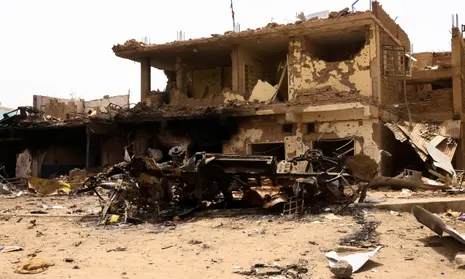The rival factions of Sudan’s military have agreed to extend the ceasefire for another 72 hours following intensive diplomatic efforts by neighboring countries, the US, the UK, and the UN. However, heavy fighting has been reported in the capital Khartoum, and at least 512 people have been killed in the two weeks of fighting between the army and a rival paramilitary group, with almost 4,200 injured. There are concerns about outbreaks of disease and a lack of services, with most hospitals in conflict areas not functioning and more than 60% of health facilities in Khartoum being inactive. While the international community has been focused on evacuating foreign nationals, there are calls to tend to the millions of people in Sudan who are in humanitarian need. The conflict broke out as a result of a bitter power struggle between the regular army and the Rapid Support Forces (RSF), who disagree about the country’s proposed move to civilian rule and fear losing power because of potential war crime charges.
The conflict in Sudan started on April 15, 2023, as a result of a power struggle between the Sudanese regular army and a paramilitary group called the Rapid Support Forces (RSF). The two factions have been clashing over the country’s proposed move to civilian rule and the timeframe for the integration of the 100,000-strong RSF into the army. Both groups fear losing power in Sudan, as there are men on both sides who could be charged with war crimes committed in Darfur almost 20 years ago and end up at the International Criminal Court.
The conflict has left hundreds dead and thousands injured, and there are reports of heavy fighting in the capital Khartoum, as well as in other provinces and regions, such as western Darfur. The situation has caused many foreign nations, including the US, UK, and UN, to urge their citizens to leave the country as soon as possible, leading to evacuation efforts that have dominated the media coverage of the crisis.
Despite the three-day ceasefire extension, there are ongoing reports of violence and bombardment by the army in the capital, and civilians continue to live in fear. Most hospitals in conflict areas are not functioning, and more than 60% of health facilities in Khartoum are inactive, leading to concerns about outbreaks of disease and a lack of services.
The international community has been criticized for neglecting the wider crisis in Sudan in the rush to evacuate foreign nationals. There are millions of Sudanese people in humanitarian need, and the situation remains complex and volatile.


